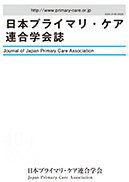Volume 42, Issue 2
Displaying 1-11 of 11 articles from this issue
- |<
- <
- 1
- >
- >|
-
2019Volume 42Issue 2 Pages 77
Published: June 20, 2019
Released on J-STAGE: June 26, 2019
Download PDF (106K)
-
2019Volume 42Issue 2 Pages 78-84
Published: June 20, 2019
Released on J-STAGE: June 26, 2019
Download PDF (399K) -
2019Volume 42Issue 2 Pages 85-91
Published: June 20, 2019
Released on J-STAGE: June 26, 2019
Download PDF (541K) -
2019Volume 42Issue 2 Pages 92-97
Published: June 20, 2019
Released on J-STAGE: June 26, 2019
Download PDF (618K) -
2019Volume 42Issue 2 Pages 98-102
Published: June 20, 2019
Released on J-STAGE: June 26, 2019
Download PDF (375K) -
2019Volume 42Issue 2 Pages 103-109
Published: June 20, 2019
Released on J-STAGE: June 26, 2019
Download PDF (391K) -
2019Volume 42Issue 2 Pages 110-116
Published: June 20, 2019
Released on J-STAGE: June 26, 2019
Download PDF (354K)
-
2019Volume 42Issue 2 Pages 117-123
Published: June 20, 2019
Released on J-STAGE: June 26, 2019
Download PDF (304K)
-
2019Volume 42Issue 2 Pages 124-126
Published: June 20, 2019
Released on J-STAGE: June 26, 2019
Download PDF (291K) -
2019Volume 42Issue 2 Pages 127-129
Published: June 20, 2019
Released on J-STAGE: June 26, 2019
Download PDF (322K)
-
2019Volume 42Issue 2 Pages 130-131
Published: June 20, 2019
Released on J-STAGE: June 26, 2019
Download PDF (74K)
- |<
- <
- 1
- >
- >|
